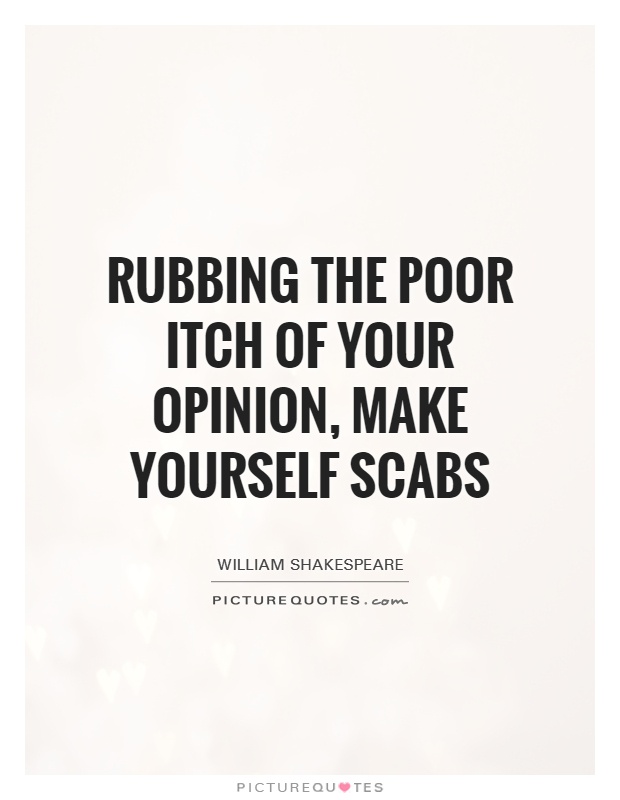Rubbing the poor itch of your opinion, make yourself scabs

Rubbing the poor itch of your opinion, make yourself scabs
In the context of William Shakespeare, the phrase "rubbing the poor itch of your opinion, make yourself scabs" can be interpreted as a warning against the dangers of arrogance and self-righteousness. Shakespeare often explored themes of pride, hubris, and the consequences of unchecked ambition in his plays, and this quote reflects his belief that those who are too quick to impose their opinions on others without considering different perspectives will ultimately harm themselves.The metaphor of "rubbing the poor itch of your opinion" suggests a sense of irritation or discomfort that comes from constantly asserting one's beliefs without regard for others. It implies a narrow-mindedness and a lack of empathy for those who may have different viewpoints. By insisting on the superiority of one's own opinions, one only exacerbates the problem, like scratching an itch until it becomes a scab.
The image of making oneself "scabs" further emphasizes the self-destructive nature of this behavior. Scabs are a natural response to injury, a protective layer that forms over a wound to aid in the healing process. However, if one continues to pick at the scab, it can lead to further damage and prevent the wound from healing properly. In the same way, clinging stubbornly to one's opinions and refusing to consider alternative perspectives can lead to conflict, isolation, and ultimately, a hardening of the heart.
Shakespeare's works are filled with characters who fall victim to their own pride and arrogance, from Macbeth's unchecked ambition to King Lear's stubborn refusal to listen to reason. These characters serve as cautionary tales, warning audiences of the dangers of hubris and the importance of humility and open-mindedness. In a world where opinions are constantly clashing and divisions are growing deeper, Shakespeare's words serve as a timely reminder to approach others with compassion and understanding, rather than judgment and self-righteousness.












 Friendship Quotes
Friendship Quotes Love Quotes
Love Quotes Life Quotes
Life Quotes Funny Quotes
Funny Quotes Motivational Quotes
Motivational Quotes Inspirational Quotes
Inspirational Quotes